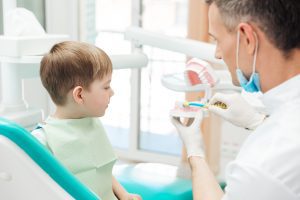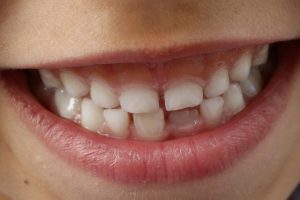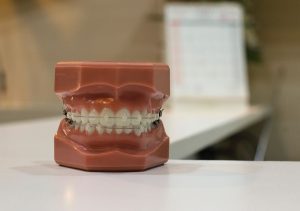
Oral hygiene habits begin developing from early childhood. One of the most important of them, although often neglected, is the habit of having dental check-ups done regularly.
Having the first visit to the dentist at a young age can be very beneficial for a child. Scheduling the first dental appointment for the child as early as their first tooth comes out, and continuing with this practice throughout their childhood, can have many positive effects for them in the future.
Below are some of the most beneficial reasons for developing a habit of visiting the dentist regularly at a young age.
1. Instilling Healthy Oral Hygiene Habits

Visiting the dentist at a young age helps the promotion of healthy dental habits. You can read more about dental hygiene or even schedule an appointment by visiting www.defineclinic.com.
The first dental appointments offer an opportunity for the child to hear about the importance of oral hygiene, as well as to learn how to properly brush and floss from professionals. This contributes both to their habits and the shaping of a positive attitude towards dentists in general.
Children who start having regular dental check-ups at an early age will feel more comfortable about going to the dentist in the future, and eventually, develop trust with their dentist. This goes a long way in helping to alleviate anxiety and fear many people associate with dental visits.
2. Early Prevention Of Cavities
Cavities in milk teeth is a risk most children are exposed to due to many different factors. Eating excessive amounts of sweets, not brushing regularly, and not knowing how to brush properly are the most common of them.
Due to these reasons, many of them actually develop cavities and tooth decay by the time they start going to school, which can cause them different problems, from toothaches to gum infections. Visiting the dentist during their pre-school years can help prevent this risk and maintain dental health.
3. Ensuring Proper Teeth Development

There is a reason why caring for the health of milk teeth is important that is often neglected. Since adult teeth grow from underneath them, if the milk teeth aren’t healthy, the chance of adult teeth being unhealthy or growing crooked is increased.
The same applies if the milk tooth falls out too soon, as the rest of the teeth will tend to move towards the new gap, leaving the adult tooth beneath it with not enough room to grow straight and healthy. By ensuring that the milk teeth are cared for properly, braces and orthodontic work can be avoided in the future.
Further, a pediatric dentist can notice any irregularities which could point to a future need for some form of orthodontic work during the check-ups. This kind of information can be very valuable when provided this early.
4. Discovering Dental Health Problems Early
Regular dental visits allow any problems with oral health to be discovered early, and their worsening to be prevented. Such problems may be caused by different factors, from poor dental hygiene to the structure of the jaw. When discovered at an early stage, corrective measures can be taken, which will eliminate the need for more complicated and lengthy procedures in the future.
The main reason why children are exposed to the risk of developing plaque and tartar is that many of them lack the skills and coordination to brush their teeth properly. Hence, going to the dentist regularly for plaque cleaning can prove essential for their dental health.
Neglecting to manage plaque and cavities at an early stage when they can be dealt with quicker and simpler can lead to further damage to the teeth, often resulting in gum infections and the need to extract teeth.
5. Correcting Bite And Speech Issues

Teeth and jaw structure is another important issue to be addressed at a young age, as their poor development can lead to issues with the child’s ability to chew and pronounce syllables correctly. This can result in long term consequences regarding a child’s food intake and their ability to speak clearly and confidently.
If addressed early during regular dentist visits, such issues can be anticipated and prevented with simple procedures or jaw exercises or corrected with braces. The sooner any problem with the structure of jaw and teeth is discovered, the simpler the solution.
Conclusion
In addition to correcting issues and preventing early cavities, getting used to dental appointments and routine procedures during childhood will have a lasting effect on the child’s understanding of the importance of oral hygiene.
Children learn the most from their parent’s example, and their attitude towards dental health, and dentists in general, will mostly depend on their earliest experiences. Makin these experiences pleasant and educational will greatly contribute to developing positive oral health habits throughout their life.
Sam
Recent Posts
- Castor Oil For Better Hair Growth: Is It Myth Or Fact?
- Exploring the Differences Between Sermorelin, Ipamorelin, Ibutamoren, GHRP2, and GHRP6: Understanding Their Role in Human Growth Hormone Regulation
- Unraveling the Mystery: Understanding the Causes and Prognosis of Ventricular Tachycardia Without Apparent Heart Disease
- Understanding Grandparents’ Rights in Oklahoma: Navigating Visitation and Legal Protections
- 10 Reasons to Consider Hypnotherapy for Your Health

